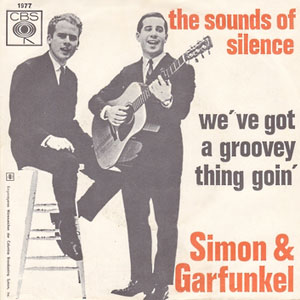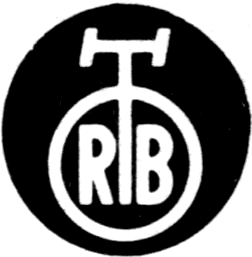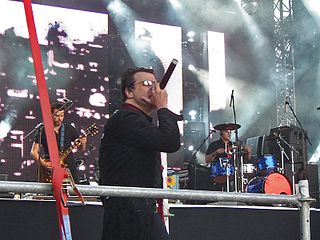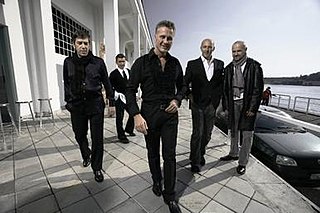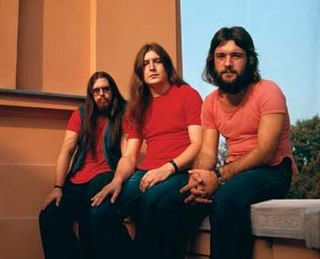| Vlada i Bajka | |
|---|---|
Vladimir Marković "Vlada" (left) and Dragutin Balaban "Bajka" (right) performing at the 1973 Opatija festival | |
| Background information | |
| Also known as | Vlada & Bajka |
| Origin | Belgrade, Serbia, Yugoslavia |
| Genres | Folk rock, soft rock, pop rock |
| Years active | 1968 – 1975 1993 – 1995 (reunions: 2011) |
| Labels | PGP-RTB, PGP-RTS, Jugoton Beograd |
| Past members | Vladimir Marković Dragutin Balaban |
Vlada i Bajka (Serbian Cyrillic : Влада и Бајка; trans. Vlada and Bajka) were a Serbian and former Yugoslav acoustic music duo from Belgrade, consisting of Vladimir Marković "Vlada" and Dragutin Balaban "Bajka".
The Serbian Cyrillic alphabet is an adaptation of the Cyrillic script for Serbo-Croatian, developed in 1818 by Serbian linguist Vuk Karadžić. It is one of the two alphabets used to write standard modern Serbian and Montenegrin, the other being Latin. In Croatian and Bosnian, only the Latin alphabet is used.
Acoustic music is music that solely or primarily uses instruments that produce sound through acoustic means, as opposed to electric or electronic means; typically the phrase refers to that made by acoustic string instruments. While all music was once acoustic, the retronym "acoustic music" appeared after the advent of electric instruments, such as the electric guitar, electric violin, electric organ and synthesizer. Acoustic string instrumentations had long been a subset of popular music, particularly in folk. It stood in contrast to various other types of music in various eras, including big band music in the pre-rock era, and electric music in the rock era.

Belgrade is the capital and largest city of Serbia. It is located at the confluence of the Sava and Danube rivers and the crossroads of the Pannonian Plain and the Balkan Peninsula. The urban area of the City of Belgrade has a population of 1.23 million, while nearly 1.7 million people live within its administrative limits.



